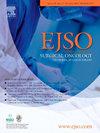Exploring the protein signature of endometrial cancer: A comprehensive review through diverse samples and mass spectrometry-based proteomics
IF 2.9
2区 医学
Q2 ONCOLOGY
引用次数: 0
Abstract
Endometrial cancer (EC) is increasing incidence among women, and it constitutes a health problem for women globally. An important aspect of EC management involves the use of protein biomarkers for early detection and monitoring. Protein biomarkers allow the identification of high-risk patients, the detection of the disease in its early stages, and the assessment of treatment responses. Mass spectrometry (MS)-based proteomics offers robust analytical techniques and a comprehensive understanding of proteins. Proteomics methods allow scientists to investigate both the quantities and functions of proteins. Thus, it provides valuable insights into how proteins are altered under different conditions. This review summarizes recent advances in MS-based proteomic biomarker discovery for EC, focusing on different sample types and MS-based techniques used in clinical studies. The review emphasized in detail the most commonly used key sources such as blood, urine, vaginal fluids and tissue. Furthermore, MS-based proteomics techniques such as untargeted, targeted, sequential window acquisition of all theoretical mass spectra (SWATH-MS) and mass spectrometry imaging used in the discovery and validation/validation phases were evaluated. This review highlights the importance of biomarker discovery and clinical translation to improve diagnostic and therapeutic outcomes in EC. It aims to provide a comprehensive overview of MS-based proteomics in EC, guiding future research and clinical applications.
探索子宫内膜癌的蛋白质特征:通过不同样本和基于质谱的蛋白质组学进行全面回顾。
子宫内膜癌(EC)在妇女中的发病率越来越高,已成为全球妇女的一个健康问题。子宫内膜癌治疗的一个重要方面是利用蛋白质生物标记物进行早期检测和监测。通过蛋白质生物标记物可以识别高危患者,在疾病早期阶段进行检测,并评估治疗反应。基于质谱(MS)的蛋白质组学提供了强大的分析技术和对蛋白质的全面了解。通过蛋白质组学方法,科学家可以研究蛋白质的数量和功能。因此,它为了解蛋白质在不同条件下如何发生变化提供了宝贵的见解。本综述总结了基于 MS 的欧共体蛋白质组生物标志物发现的最新进展,重点介绍了临床研究中使用的不同样本类型和基于 MS 的技术。综述详细强调了血液、尿液、阴道分泌物和组织等最常用的关键来源。此外,还评估了基于质谱的蛋白质组学技术,如非靶向、靶向、所有理论质谱的顺序窗口采集(SWATH-MS)以及在发现和验证/确认阶段使用的质谱成像技术。本综述强调了生物标记物发现和临床转化对改善心血管疾病诊断和治疗效果的重要性。它旨在全面概述基于 MS 的蛋白质组学在心血管疾病中的应用,为未来的研究和临床应用提供指导。
本文章由计算机程序翻译,如有差异,请以英文原文为准。
求助全文
约1分钟内获得全文
求助全文
来源期刊

Ejso
医学-外科
CiteScore
6.40
自引率
2.60%
发文量
1148
审稿时长
41 days
期刊介绍:
JSO - European Journal of Surgical Oncology ("the Journal of Cancer Surgery") is the Official Journal of the European Society of Surgical Oncology and BASO ~ the Association for Cancer Surgery.
The EJSO aims to advance surgical oncology research and practice through the publication of original research articles, review articles, editorials, debates and correspondence.
 求助内容:
求助内容: 应助结果提醒方式:
应助结果提醒方式:


